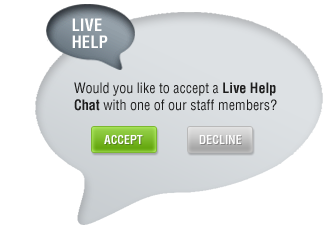10 Most Common Medical Errors
Unfortunately, medical errors have become a common part of the human experience. However, there are numerous procedures being put in place that help avoid most of these common mistakes. If you are a patient, about to have some type of surgery, or love someone who is under medical care, take note of these common errors so you know what to watch out for.

Mistake #1: Medication Error
One of the most common forms of medical error would be that of some type of mistake with a medication. This can be the wrong medication entirely, a medication you are allergic to, or the wrong dosage for what you need. This is something that is easily avoidable when there is consistent communication between the Doctor and the patient. If you don't always have a good memory when it comes to what medications you currently take and what each of their doses are, put a list in your wallet or purse and keep it with you anytime you're going to the Dr.
Mistake #2: Lab Mistakes
There are numerous lab mistakes that can happen. These types of mistakes can include the wrong test being done, a wrong diagnosis, mixed up or misplaced results, or even the test being done improperly. The best way to avoid these medical errors is to find out from your Doctor what you are having done and why, and make sure to pay attention to how the test should go. Mistakes within the lab are beyond your control, but going to a reputable lab is the best defense against this mistake.
Mistake #3: Incorrect Diagnosis
Another common medical error is getting the wrong diagnosis. This can be due to another medical mistake where test results were skewed elsewhere, or it can be because of a Doctor error. Either way, this can have devastating consequences. Patients should never assume that their Doctor is infallible, and should always get a second opinion before believing the diagnosis when it is something life altering. Doctors can make mistakes, but the more alert you are, the less likely you are to experience this type of mistake.
Mistake #4: Forgotten Communication
This medical mistake is often on the part of the Doctor as well as the patient. Doctor's usually see hundreds or thousands of patients in a very short amount of time, so you cannot automatically assume your Doctor has your chart memorized. Remind him or her of what tests were done if they apply to your conversation, and make sure you always mention any allergies before a medication is ordered for you. This will help ensure that your medical concerns are not overlooked or accidentally confused with those of another patient the Doctor recently saw.
Mistake #5: Missed Allergies
When you notice yourself feeling off after a test or new medication, you need to tell your Doctor. If a Doctor doesn't know that you felt different, this could end up with an allergy that is overlooked and could have bad consequences down the line. Also, you need to make sure that every Doctor, nurse, or practitioner you see is well aware of your known allergies so that you do not end up getting the wrong medicine.
Mistake #6: Wrong Treatment
Looking at a chart, an x-ray, or a set of results does not mean that the Doctor automatically knows the best treatment. If the Doctor is older, he or she may not be up to date with the most current treatment options. Also, if the results or x-ray the Doctor is looking at is not yours due to a mistake elsewhere, you could end up facing the wrong treatment for your ailment.
Mistake #7: Surgical Mistakes
Going in for surgery is often nerve-wracking as it is, but adding in the worry of someone making a mistake during the surgery can cause a full-blown panic. Some common surgical mistakes include leaving medical equipment behind, doing the wrong surgery, performing on the wrong location, or being given the wrong medication during surgery. Fortunately, many of these mistakes can be avoided by the new protocols being put into place that involve surgeon's signatures, medical check lists, and pre-op interviews with some of the surgical staff.
Mistake #8: Getting an Infection
Hospitals go out of their way to remain as clean as possible, but due to the mass quantity of contagions that walk in and out of the doors each day, hospitals are breeding grounds for infections. If you end up in the hospital for a check-up, lab work, or for a stay, make sure you inform your Doctor the moment you notice yourself feeling different, particularly if you develop any type of fever. The more you avoid exposure and wash your hands, the more likely you are to avoid an infection.
Mistake #9: Birth Defects
Any type of a delay during labor and delivery has the potential of causing birth defects. This can be from negligence, or simply because your doctor did not notice warning signs. If you notice yourself feeling different, you experience pain, or you hear extreme dips in the baby's heartbeat while being monitored, you need to let your Doctor and the nursing staff know immediately.
Mistake #10: Drug Confusion at Pharmacies
While this medical error is similar to number one, it can also be vastly different. Many prescription drugs look almost identical, especially when looking at different doses of the same drug. Talk to your pharmacist before taking any new medication, and when you get your prescriptions filled, look at the pills to make sure they are what they are supposed to be. Prescription bottles are supposed to describe the medication now to help avoid this medical error.
Bonus Mistake #11: Inaccurate Pill Counts
It can happen from time-to-time. When pharmacies fill prescriptions they sometimes get the pill quantities wrong. In some pharmacies they still count pills by hand which can lead to errors. Not many people count their pills when they get their refill. This can be especially bad if the pill count puts you a few days short of your next refill. Running out of medication early can be dangerous for many. A great way for pharmacies to prevent this is to rely on technology to get pill counts accurate. Torbal specializes in ultrafast pill counting machines with superior accuracy.
You cannot simply rely on your Doctor or pharmacist to be perfect in today's busy world. You must be proactive when it comes to avoiding medical errors. If you are ever unsure of what is going on or why, speak up and ask questions. That will save you the most time and worry, plus potentially save your life.








 DRX-4C2
DRX-4C2
 DRX-200/300
DRX-200/300
 DRX-4
DRX-4

 RXP-4 Thermal Printer
RXP-4 Thermal Printer
 Miniature Keyboard
Miniature Keyboard
 Draft Shield
Draft Shield
 300g Calibration Weight
300g Calibration Weight
 100g Calibration Weight
100g Calibration Weight
 Combination Metric and Apothecar...
Combination Metric and Apothecar...
 Combination Metric and Apothecar...
Combination Metric and Apothecar...
 Stainless Steel Metric and Apoth...
Stainless Steel Metric and Apoth...

